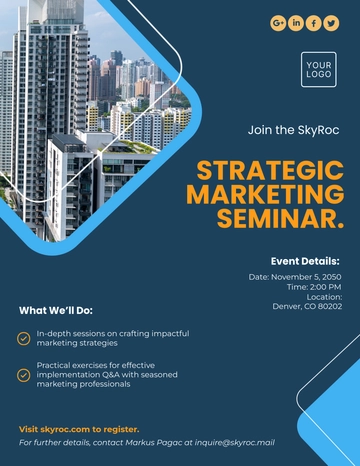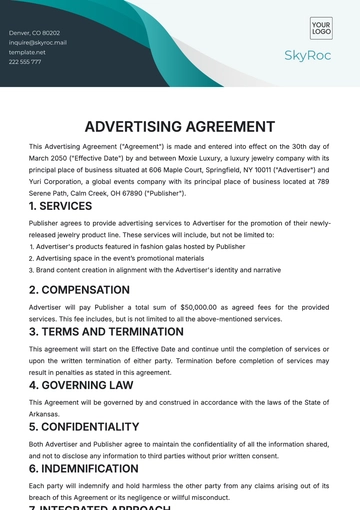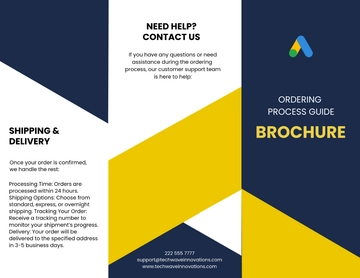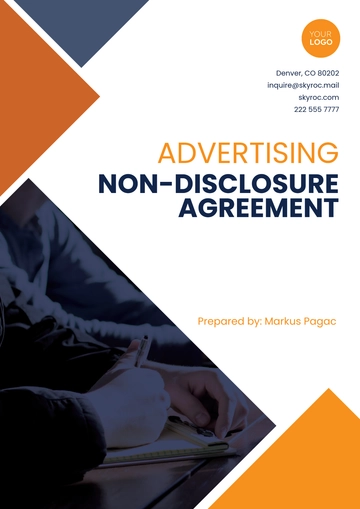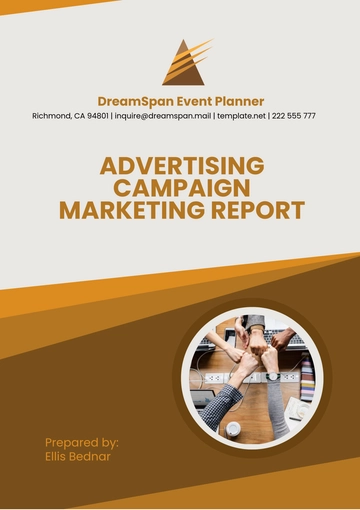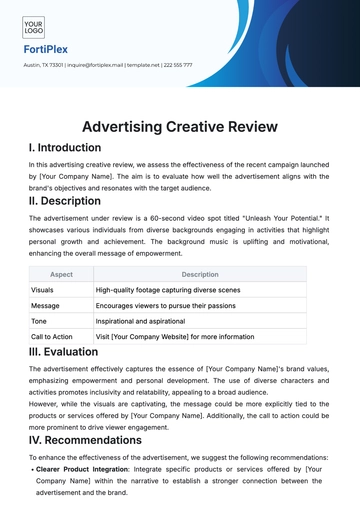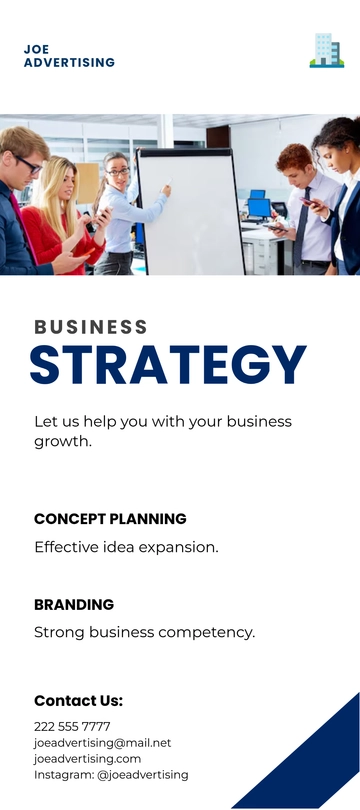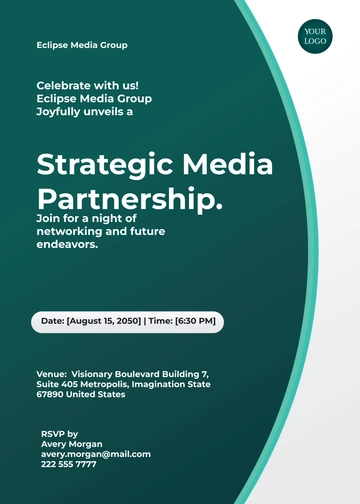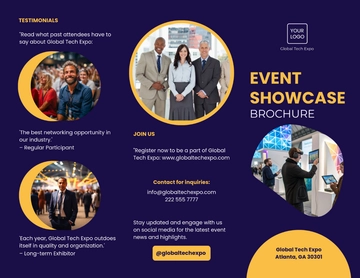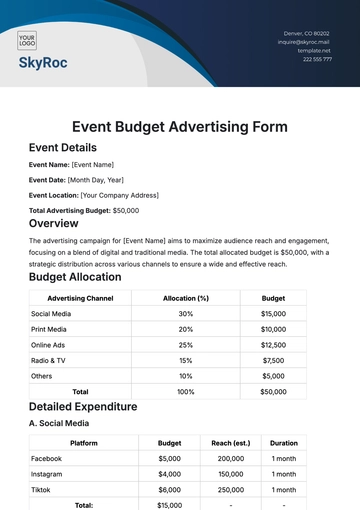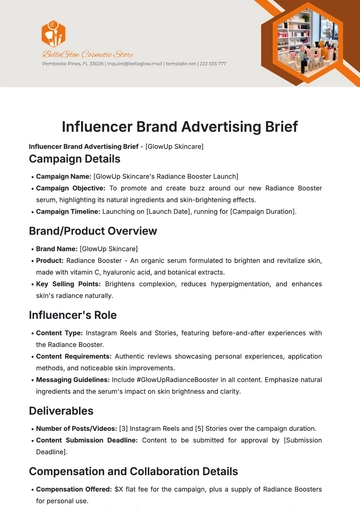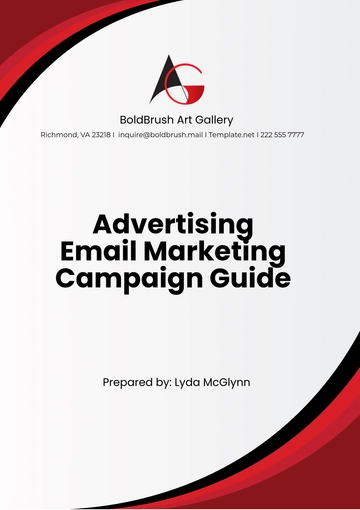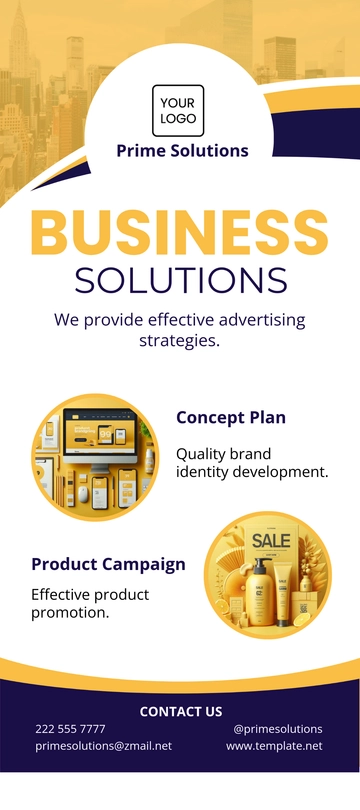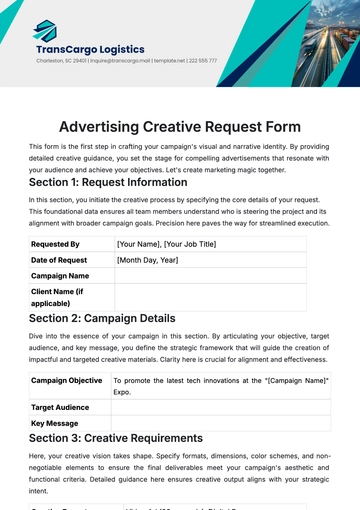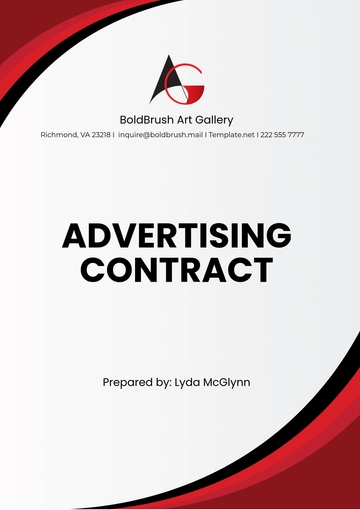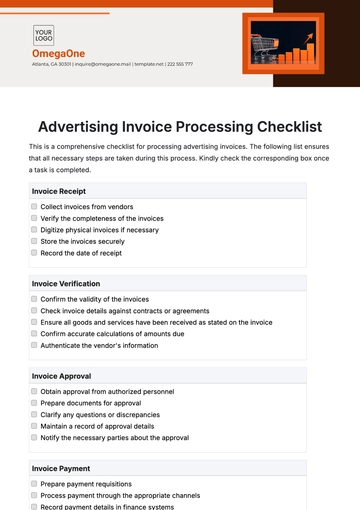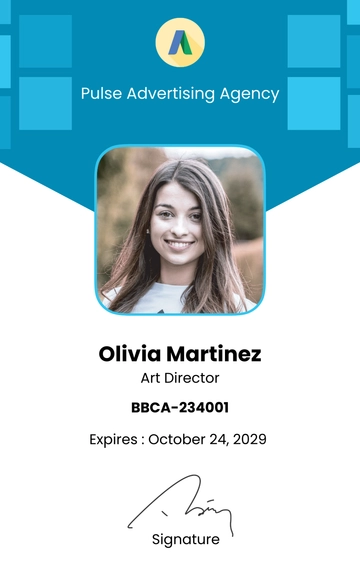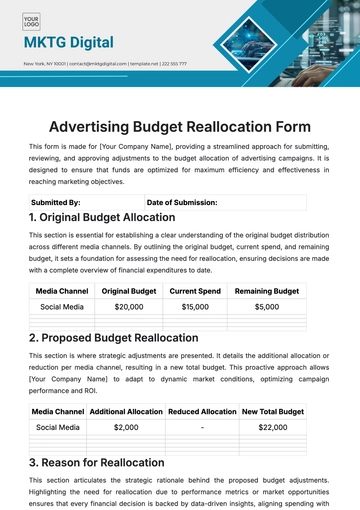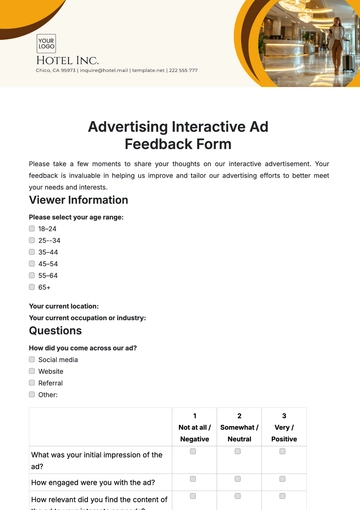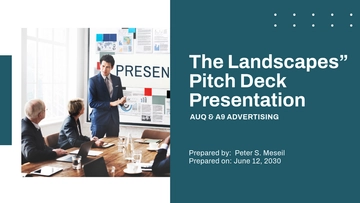Free Event Security Advertising Brief
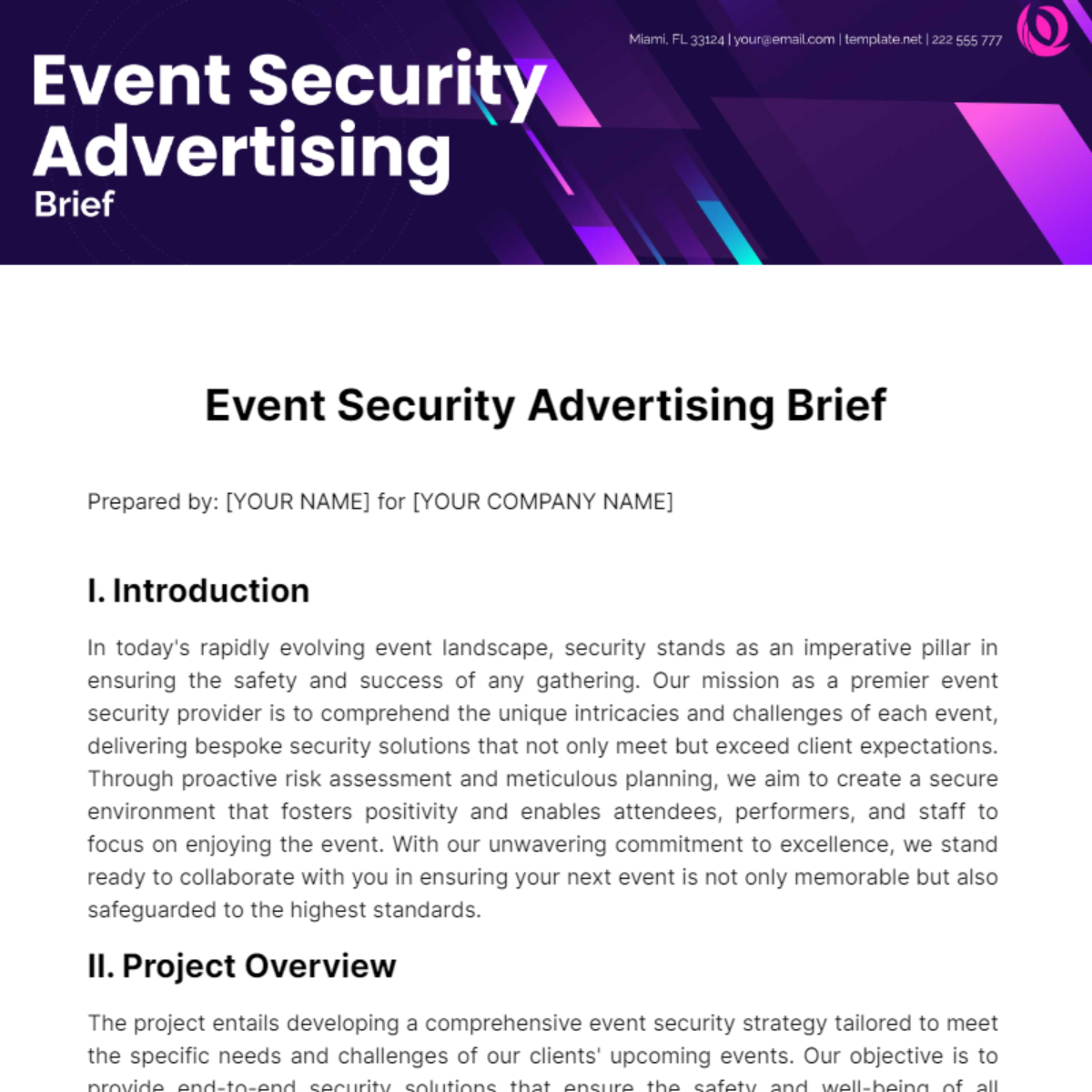
Prepared by: [YOUR NAME] for [YOUR COMPANY NAME]
I. Introduction
In today's rapidly evolving event landscape, security stands as an imperative pillar in ensuring the safety and success of any gathering. Our mission as a premier event security provider is to comprehend the unique intricacies and challenges of each event, delivering bespoke security solutions that not only meet but exceed client expectations. Through proactive risk assessment and meticulous planning, we aim to create a secure environment that fosters positivity and enables attendees, performers, and staff to focus on enjoying the event. With our unwavering commitment to excellence, we stand ready to collaborate with you in ensuring your next event is not only memorable but also safeguarded to the highest standards.
II. Project Overview
The project entails developing a comprehensive event security strategy tailored to meet the specific needs and challenges of our clients' upcoming events. Our objective is to provide end-to-end security solutions that ensure the safety and well-being of all attendees, performers, and staff while maintaining the integrity and success of the event. Through a meticulous assessment of potential risks and vulnerabilities, we will devise a proactive security plan encompassing crowd management, access control, surveillance, emergency response protocols, and coordination with local authorities. By leveraging our expertise and cutting-edge technology, we aim to instill confidence and peace of mind in our clients, allowing them to focus on delivering a memorable event experience. This project emphasizes collaboration, adaptability, and a relentless commitment to excellence in event security.
III. Advertising Requirements
In this section, we discuss the advertising requirements, which are highly integral to realizing the successful implementation of the campaign.
Target Audience Identification: Conduct thorough research to identify the primary target audience for the event security campaign. This may include event organizers, venue managers, corporate clients, concert promoters, or festival organizers.
Messaging Strategy: Develop clear and compelling messaging that highlights the key benefits and value propositions of our event security services. Emphasize factors such as expertise, reliability, flexibility, and commitment to excellence.
Visual Branding: Create visually appealing assets that align with our brand identity and resonate with the target audience. This may include logos, graphics, images, and other design elements that convey professionalism, trustworthiness, and competence.
Multi-channel Approach: Plan a multi-channel advertising strategy to reach the target audience through various platforms and mediums. This may include digital channels such as social media, search engines, and email marketing, as well as traditional channels like print ads, radio, and outdoor advertising.
Call to Action (CTA): Incorporate clear and compelling calls to action in all advertising materials, prompting the audience to engage with our services. Whether it's directing them to visit our website, contact us for a consultation, or inquire about our event security solutions, the CTA should encourage immediate action.
Compliance and Regulations: Ensure all advertising materials comply with relevant regulations and guidelines, particularly in industries like security and event management. Adhere to legal requirements regarding privacy, data protection, and advertising standards.
Measurement and Analytics: Implement mechanisms to track and measure the effectiveness of the advertising campaign. Utilize analytics tools to monitor key metrics such as website traffic, lead generation, conversion rates, and return on investment (ROI). This data will inform future advertising efforts and help optimize campaign performance.
Budget Allocation: Allocate sufficient budget for advertising expenses, considering the costs associated with various channels and tactics. Prioritize channels that offer the best reach and return on investment, while also exploring opportunities for cost-effective advertising options.
IV. Target Audience
Event Organizers: These individuals or companies are responsible for planning and executing events of various sizes and types, including corporate conferences, concerts, festivals, trade shows, and sports events. They prioritize safety and security as essential elements of event planning and seek reliable security partners to ensure smooth operations.
Venue Managers: Managers of event venues, such as convention centers, stadiums, arenas, and exhibition halls, are crucial stakeholders in event security. They require security solutions that align with the unique characteristics and layout of their venues while providing a safe environment for attendees and staff.
Corporate Clients: Businesses hosting corporate events, product launches, seminars, or annual meetings prioritize the safety and security of their employees, clients, and guests. They seek security services that reflect their brand values, professionalism, and commitment to ensuring a secure environment for all participants.
Concert Promoters: Promoters organizing music concerts, live performances, and entertainment events are focused on creating an enjoyable and memorable experience for attendees. They require robust security measures to manage crowd control, handle emergencies, and protect artists, staff, and audience members.
Festival Organizers: Organizers of cultural festivals, food festivals, arts events, and community gatherings understand the importance of comprehensive security planning to address diverse challenges, including crowd management, access control, and emergency response.
Security Managers: Professionals responsible for security operations within organizations, venues, or event management companies play a critical role in selecting security partners. They seek experienced and reputable security providers capable of delivering tailored solutions that meet specific security requirements and compliance standards.
V. Budget and Timeline
Our budget for the advertisement services stands at [INSERT AMOUNT], which should cover all proposed solutions from concept generation to broadcasting. However, we are open to negotiation regarding the budget within reasonable limits. We understand the importance of investing in effective advertising strategies to ensure the success of our event security campaign.
The proposed timeline for this project is [INSERT TIMEFRAME], and we expect weekly updates and progress reports from the agency. This timeframe allows for thorough planning, creative development, implementation, monitoring, and evaluation of the advertising campaign. Regular updates and progress reports will ensure transparency and alignment with our goals and objectives throughout the project duration.
By adhering to this budget and timeline, we aim to maximize the impact and effectiveness of our event security advertising campaign, reaching our target audience and generating positive outcomes for our organization. We look forward to collaborating closely with the agency to achieve our advertising objectives and deliver a successful campaign.
VI. Evaluation Criteria
By evaluating the project's success based on these measurable marketing metrics, we can assess the effectiveness of the event security advertising campaign in achieving its objectives and driving tangible business outcomes. This data-driven approach will provide valuable insights for optimizing future advertising efforts and maximizing return on investment.
Reach and Engagement: Measure the reach of the advertising campaign across various channels, including impressions, clicks, and engagement metrics such as likes, comments, shares, and retweets. Evaluate the effectiveness of different messaging strategies and creative elements in capturing audience attention and driving engagement.
Conversion Rate: Track the conversion rate of advertising efforts, including the number of leads generated, inquiries received, and conversions achieved (e.g., event bookings, and service inquiries). Analyze the effectiveness of different advertising channels and tactics in driving conversions and achieving desired outcomes.
Return on Investment (ROI): Calculate the ROI of the advertising campaign by comparing the cost of advertising to the revenue generated or the value of leads generated. Evaluate the efficiency and effectiveness of advertising expenditures in generating tangible business outcomes and delivering a positive return on investment.
Brand Awareness and Perception: Assess changes in brand awareness and perception among the target audience before and after the advertising campaign. Utilize surveys, brand tracking studies, and social media sentiment analysis to measure shifts in brand awareness, sentiment, and perception resulting from advertising efforts.
Website Traffic and Engagement: Monitor website traffic metrics, including visits, page views, and time spent on site, to evaluate the impact of advertising on driving website traffic and engagement. Track the performance of landing pages and conversion paths to assess the effectiveness of advertising in driving website conversions.
Customer Acquisition Cost (CAC): Calculate the customer acquisition cost by dividing the total advertising spend by the number of new customers acquired during the campaign period. Evaluate the efficiency and cost-effectiveness of advertising efforts in acquiring new customers and expanding the customer base.
Feedback and Satisfaction: Solicit feedback from stakeholders, including clients, event organizers, venue managers, and audience members, to gauge satisfaction with the event security advertising campaign. Conduct post-campaign surveys or interviews to gather insights and recommendations for future improvements.
Competitive Analysis: Conduct a competitive analysis to benchmark the performance of the event security advertising campaign against industry competitors. Compare key metrics such as reach, engagement, conversion rate, and ROI to identify strengths, weaknesses, and opportunities for improvement.
VII. Conclusion
In conclusion, the success of our event security advertising campaign hinges on strategic planning, creative execution, and meticulous evaluation. By aligning our efforts with measurable marketing metrics and objectives, we can effectively gauge the impact and effectiveness of our advertising initiatives. Through comprehensive reach, engagement, and conversion tracking, we will gain insights into audience response, brand perception, and the overall return on investment. Additionally, ongoing feedback and competitive analysis will inform future advertising strategies, allowing us to adapt and optimize our approach for maximum impact and effectiveness. With a commitment to transparency, accountability, and continuous improvement, we are confident in our ability to deliver a successful event security advertising campaign that drives tangible business outcomes and elevates our brand presence in the marketplace.
- 100% Customizable, free editor
- Access 1 Million+ Templates, photo’s & graphics
- Download or share as a template
- Click and replace photos, graphics, text, backgrounds
- Resize, crop, AI write & more
- Access advanced editor
Introducing the Event Security Advertising Brief Template from Template.net – your comprehensive guide to ensuring safety and success. Customizable and editable, this template empowers event organizers to outline security requirements, protocols, and objectives with ease. Seamlessly editable in our Ai Editor Tool, it guarantees precision and professionalism in every detail. Elevate your event security planning with a tool designed to prioritize safety and enhance peace of mind.
